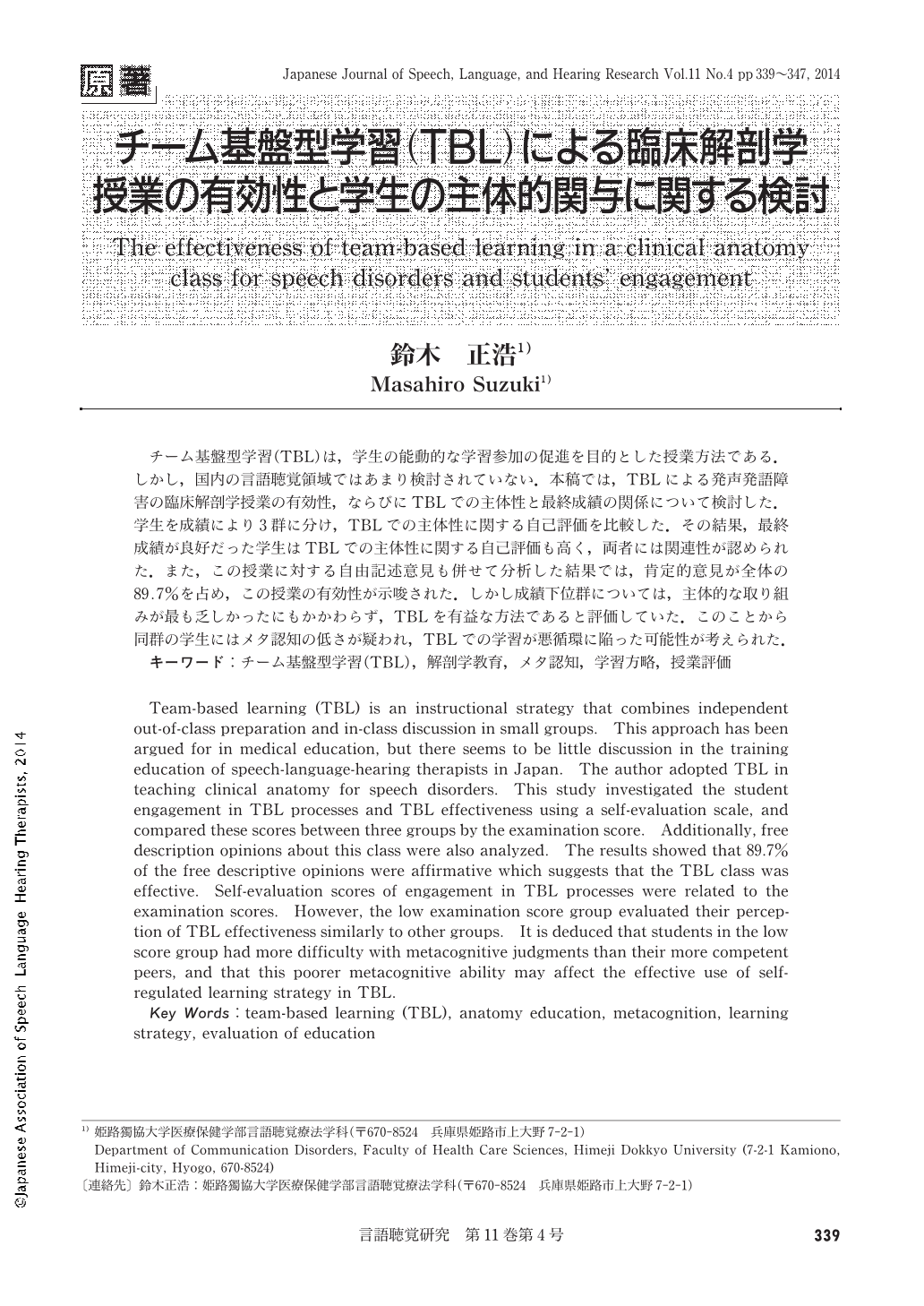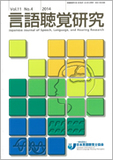Japanese
English
- 有料閲覧
- Abstract 文献概要
- 1ページ目 Look Inside
- 参考文献 Reference
チーム基盤型学習(TBL)は,学生の能動的な学習参加の促進を目的とした授業方法である.しかし,国内の言語聴覚領域ではあまり検討されていない.本稿では,TBLによる発声発語障害の臨床解剖学授業の有効性,ならびにTBLでの主体性と最終成績の関係について検討した.学生を成績により3群に分け,TBLでの主体性に関する自己評価を比較した.その結果,最終成績が良好だった学生はTBLでの主体性に関する自己評価も高く,両者には関連性が認められた.また,この授業に対する自由記述意見も併せて分析した結果では,肯定的意見が全体の89.7%を占め,この授業の有効性が示唆された.しかし成績下位群については,主体的な取り組みが最も乏しかったにもかかわらず,TBLを有益な方法であると評価していた.このことから同群の学生にはメタ認知の低さが疑われ,TBLでの学習が悪循環に陥った可能性が考えられた.
Team-based learning (TBL) is an instructional strategy that combines independent out-of-class preparation and in-class discussion in small groups. This approach has been argued for in medical education, but there seems to be little discussion in the training education of speech-language-hearing therapists in Japan. The author adopted TBL in teaching clinical anatomy for speech disorders. This study investigated the student engagement in TBL processes and TBL effectiveness using a self-evaluation scale, and compared these scores between three groups by the examination score. Additionally, free description opinions about this class were also analyzed. The results showed that 89.7% of the free descriptive opinions were affirmative which suggests that the TBL class was effective. Self-evaluation scores of engagement in TBL processes were related to the examination scores. However, the low examination score group evaluated their perception of TBL effectiveness similarly to other groups. It is deduced that students in the low score group had more difficulty with metacognitive judgments than their more competent peers, and that this poorer metacognitive ability may affect the effective use of self-regulated learning strategy in TBL.

Copyright © 2014, Japanese Association of Speech-Language-Hearing Therapists. All rights reserved.


